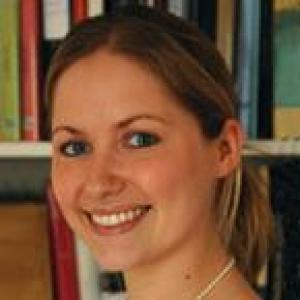
My main research interests lie in the application of contemporary sociolinguistics to the ancient world and the integration of epigraphy, linguistics and archaeology to write socio-cultural history. My ERC-funded project LatinNow on life and languages of Roman western Europe was completed in 2023 https://latinnow.eu/, the data can be found here https://gis.latinnow.eu/ and the trilogy of Open Access books downloaded via the OUP website: Latinization, Local Languages and Literacies in the Roman West (ed. with Anna Willi), Languages and Communities in the Late-Roman and Post-Imperial Western Provinces (ed. with George Woudhuysen), Social Factors in the Latinization of the Roman West. I currently work on projects on Gaulish inscriptions (ANR), technology for reading ancient texts (SSHRC), writing tablets from Britannia (British Academy), and Roman Inscriptions of Britain in Schools (UKRI) https://romaninscriptionsofbritain.org/. I have published the following books with Cambridge University Press: The Language of Letters: Bilingual Roman Epistolography from Cicero to Fronto (with Olivia Elder), Southern Gaul and the Mediterranean: Multilingualism and Multiple Identities in the Iron Age and Roman Periods and (co-edited with Patrick James) Multilingualism in the Graeco-Roman Worlds. I have also published a born digital, open access eBook, Manual of Roman Everyday Writing Vol. 1 Scripts and Texts (with Alan Bowman, Oxford) http://bit.ly/MREW1, and introductions to Gaulish in three languages (with Coline Ruiz Darasse, Bordeaux). I collaborate in several international projects, including on Gaulish inscriptions (ANR), technology for reading ancient texts (SSHRC), writing tablets from Britannia (British Academy), and Roman Inscriptions of Britain in Schools (UKRI) https://romaninscriptionsofbritain.org/. At Oxford I lectured on Imperial and Late Latin, Roman Britain and Latin Epigraphy for the Classics Faculty.
- Lumley Research Fellow, Magdalene College, Cambridge (from 2008 to 2011)
- Undergraduate and Postgraduate, Jesus College, Cambridge (from 2001 to 2008)
- Post-Doctoral Research Fellow, All Souls College (from 2011 to 2015)
- Ancient history
- Roman epigraphy
- Ancient sociolinguistics
- Roman archaeology
- Gaul and Britain (600 BC to AD 400)
- LatinNow
- Digital epigraphy: Gaulish and Roman Inscriptions of Britain
- The Canterbury Hinterland Project
- Code-switching in Roman literature
- Social Factors in the Latinization of the Roman West (Oxford: Oxford University Press, 2023)
- (ed. with Anna Willi) Latinization, Local Languages and Literacies in the Roman West (Oxford: Oxford University Press, 2024)
- (ed. with George Woudhuysen) Languages and Communities in the Late-Roman and Post-Imperial Western Provinces (Oxford: Oxford University Press, 2024)
- (with Alan Bowman) Manual of Roman Everyday Writing. Vol. 1 Scripts and Texts (Nottingham: LatinNow ePubs, 2021) http://bit.ly/MREW1
- (with Olivia Elder) The Language of Letters: Bilingual Roman Epistolography from Cicero to Fronto (Cambridge: Cambridge University Press, 2019)
- (with Coline Ruiz Darasse) Gaulish. Language, Writing, Epigraphy (Zaragoza: University of Zaragoza Press, 2018) [translated into French and Spanish, both 2019]
- Southern Gaul and the Mediterranean. Multilingualism and multiculturalism in the Iron Age and Roman periods (Cambridge: Cambridge University Press, 2013).
- (ed. with Patrick James) Multilingualism in the Graeco-Roman Worlds (Cambridge: Cambridge University Press, 2012).
- ‘Transformations de la Gaule sous l’Empire romain : une culture de l’écrit au service de la production de masse’ in M. Coltelloni-Trannoy and N. Moncunill (eds) La culture de l’écrit en Méditerranée occidentale à travers les pratiques épigraphiques (Gaule, Ibérie, Afrique du Nord) (Leuven: Peeters, in press) 131–162
- ‘A sociolinguistic and archaeological epigraphy: translingualism, uncertainty and inscribed Roman spindle whorls’ in E. Cousins (ed.) Dynamic Epigraphy: New Approaches to Inscriptions (Oxford: Oxbow, in press) 39–64
- Bozia, E. and Mullen, A. ‘Translingualism in the Greek and Roman worlds’ in S. Kellman and N. Lvovich (eds) Handbook of Literary Translingualism (New York/Abingdon: Routledge, 2021) 45–59
- ‘Socio-literacy: an interdisciplinary approach to understanding literacy in the Roman North-West’ in M. Ramírez and N. Moncunill (eds) Aprender la escritura, olvidar la escritura (Vitoria: ehu press, 2021) 357–380
- Mullen, A. and Darasse, C. R. ‘Gaulish’ Palaeohispanica 20, (2020), 749–783
- Mullen, A. and Tomlin, R. S. O. ‘More from the Romano-British poets? A new metrical inscription from East Farleigh, Kent’ Britannia 50, (2019), 47–54
- Wallace, L. and Mullen, A. ‘Landscape, Monumentality and Expression of Group Identities in Iron Age and Roman east Kent’ Britannia 50, (2019), 75–108
- Best School Engagement Initiative, University of Nottingham 2023
- Arts Impact Accelerator Awards 2022, 2023
- European Research Council Grant
- Philip Leverhulme Prize (2018)
- James Henry Breasted Prize (American Historical Association) (2014)